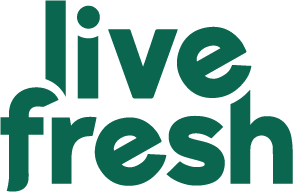In unserer heutigen Zeit, in der immer mehr Menschen Wert auf eine gesunde Lebensweise legen, gewinnt auch die Bedeutung einer purinarmen Ernährung zunehmend an Aufmerksamkeit. Purine sind natürliche Bestandteile, die in vielen Lebensmitteln vorkommen und im Körper zu Harnsäure abgebaut werden. Ein übermäßiger Konsum von purinreichen Lebensmitteln kann bei einer entsprechenden Veranlagung zu einem Anstieg der Harnsäurewerte führen und verschiedene gesundheitliche Probleme wie Gicht verursachen.
Eine purinarme Ernährung ist nicht für jeden förderlich und ratsam. Lediglich wenn Dein Körper Schwierigkeiten beim Abbau der Harnsäure hat, sollten Purine in der Ernährung, reduziert werden. Detailliertere Infos zu purinarmer Kost findest Du in unserem Beitrag zur purinarmen Kost.
In diesem Artikel werden wir uns auf eine Vielzahl von purinarmen Lebensmitteln konzentrieren, die in einer ausgewogenen Ernährung integriert werden können. Zusätzlich werden wir Dir die besten Rezeptvorschläge für purinarme Gerichte liefern, um den Übergang zu einer purinarmen Ernährung zu erleichtern und den Genuss von gesundem Essen zu fördern.
Highlights
- Purinarme Lebensmittel sind ideal, um Harnsäure im Körper zu reduzieren, insbesondere bei Gicht.
- Empfehlenswert sind Obst, Gemüse, Vollkornprodukte, fettarme Proteine und Nüsse.
- Purinreiche Lebensmittel wie Innereien und Meeresfrüchte sollten vermieden werden.
Foods that are preferred in a low-purine diet
- Fruit and vegetables:
Fruits and vegetables are very important in a low purine diet as they are low in purines and rich in fiber, vitamins, minerals and antioxidants. Favor a variety of fresh fruits such as apples, berries, citrus fruits and bananas. For vegetables, you can focus on green leafy vegetables, tomatoes, peppers, cucumbers and carrots. These foods can help maintain a balanced diet while providing you with important nutrients.
- Whole grain products:
Whole grains such as whole wheat bread, whole wheat pasta, brown rice, oatmeal and quinoa are good options in a low purine diet. They are rich in fiber and provide long-lasting satiety. Whole grain products can help to keep blood sugar levels stable and promote healthy digestion.
- Dairy products and eggs:
Dairy products such as milk, yogurt and cheese, as well as eggs, are low-protein foods that can be favored. They provide important nutrients such as calcium, vitamin D and high-quality protein.
- Nuts and seeds:
Nuts and seeds are good sources of healthy fats, fiber and plant-based protein. Walnuts, almonds, chia seeds, flax seeds and sunflower seeds are examples of nuts and seeds that can be favored in a low purine diet. They can be used as snacks, toppings for salads or as ingredients in dishes.
- Low-fat proteins:
Low-fat protein sources, such as chicken, turkey or fish are rich in amino acids, supports muscle building and tissue repair, while being low in purines. Red meat or very high-fat meat, on the other hand, contains more purines.
These low-purine foods are rich in important nutrientssupport healthy digestion, promote heart health and can help with weight control. By eating these foods into your dietyou can not only reduce the purine contentbut also a promote a balanced diet and benefit from the positive effects on health.
Purine table: Foods that increase your uric acid
If you want or need to eat a low-purine diet, you should avoid purine-rich foods with a content of more than 250 mg uric acid entirely abstain.
Explanation:
- 1 mg uric acid corresponds to approximately 0.42 mg purines
- 1 mg of purines corresponds to approximately 2.4 mg of uric acid
Food per 100 grams
Formed uric acid (milligrams)
Meat extract, gravy
3500
Yeast and yeast products (yeast extract, instant stock cubes)
750-1800
Offal (liver, kidneys, sweetbreads)
300-1200
Sprats
800
Yeast
680
Mussels
370
Oil sardines
345
Poultry skin
300
Fish with skin (trout, matjes, herring)
300
Meat (especially muscle meat and skin)
275
Poppy seeds
170
Liver sausage
165
Legumes (white beans, peas, soy)
100-190
Linseed, sunflower seeds
105-155
Toast
104
Oat flakes
100
Recipe suggestions for low-purine dishes
Ideas for low-purine breakfast options
- Oatmeal with fresh berries and almonds: Cook oatmeal with low-fat milk or almond milk and garnish with fresh berries and chopped almonds.
- Scrambled eggs with vegetables: Prepare scrambled eggs with peppers, spinach, tomatoes and onions. Serve with a slice of wholemeal bread.
- Greek yogurt with nuts and honey: Enjoy low-fat Greek yogurt with chopped nuts and a drizzle of honey.
- Vegan breakfast smoothie with berries and oat flakes
You can also find more breakfast ideas at Fitness breakfast: a perfect start to the day or Healthy breakfast to lose weight.
Suggestions for low-purine main courses
- Grilled chicken with baked vegetables: Season chicken breast with spices of your choice and cook on the grill or in the oven. Serve with a mixture of baked vegetables such as zucchinis, peppers and eggplant.
- Lentil soup with vegetables: Make a hearty lentil soup with carrots, celery, onions and spices. Garnish with fresh herbs.
- Grilled fish with quinoa: Grill a fillet portion of oily fish such as salmon or mackerel and serve with a side of quinoa and steamed vegetables.
- Oven baked Brussels sprouts with cauliflower rice: Is not only low in purines, but also ideal for losing weight.
- Avocado toast made from sweet potatoes: is not only healthy, but also delicious!
LiveFresh also offers vegan bowls in many different flavors - with a focus on low carb and high protein. These dishes create the ideal basis for losing weight and can be prepared in just a few minutes.
Snack and dessert ideas with a low purine content
- Vegetable sticks with hummus: Cut various vegetables such as carrots, cucumbers and peppers into sticks and dip with homemade hummus.
- Fruit skewers: Thread fruit such as melon balls, grapes and pineapple onto skewers and enjoy as a refreshing snack.
- Yoghurt with berries: Mix yogurt with fresh berries such as strawberries, blueberries or raspberries and garnish with a pinch of cinnamon.
These recipe suggestions offer delicious options for low-purine dishes that are both healthy and tasty. You can find more healthy snack ideas and recipes on our blog and our Instagram channel. By using fresh ingredients and spices, you can prepare a variety of delicious meals to suit your needs. Enjoy your meal!
Are low-purine foods only relevant for people with gout or uric acid problems?
No, low-purine foods can also be relevant for people without specific gout or uric acid problems. A low-purine diet rich in fruits, vegetables, low-fat proteins and whole grains can be part of a healthy diet and reduce the risk of obesity and chronic diseases such as cardiovascular disease.
Can a low-purine diet permanently reduce uric acid levels in the blood?
Yes, in many cases a low purine diet can help to lower blood uric acid levels, especially when practiced in conjunction with a healthy lifestyle. However, it is important to note that individual response to diet and lifestyle can vary. In some cases, additional medication may be required to control uric acid levels.
Which drinks are low in purine and can be consumed without hesitation?
Low-purine drinks generally include water, herbal teas, unsweetened tea and coffee. These drinks are generally purine-free or have a very low purine content and can be consumed without hesitation.
Are low-purine foods poor in other important nutrients?
No, low-purine foods are generally not poor in other important nutrients. Fruits, vegetables, whole grains and low-fat proteins are rich in vitamins, minerals, fiber and other nutrients that are important for a balanced diet.
Can a low-purine diet be combined with other special diets such as gluten-free or lactose-free?
Yes, a low purine diet can easily be combined with other special diets such as gluten-free or lactose-free. There are many food options that can be used in different diets to ensure that the diet meets individual needs.
Do you have to completely avoid purine-rich foods or is there a recommended limit?
For some people, especially those with gout or hyperuricemia, it may be advisable to reduce or limit their consumption of purine-rich foods. However, it is rarely necessary to avoid these foods completely unless a doctor has specifically recommended it. Moderate consumption of purine-rich foods may be acceptable for most people as long as it is part of a balanced diet.
Das könnte dich auch interessieren

Dr. Ulrike Fischer
Nutritionist
Developed on a scientific basis by Dr. Ulrike Fischer, who holds a doctorate in nutritional science.
In unserer heutigen Zeit, in der immer mehr Menschen Wert auf eine gesunde Lebensweise legen, gewinnt auch die Bedeutung einer purinarmen Ernährung zunehmend an Aufmerksamkeit. Purine sind natürliche Bestandteile, die in vielen Lebensmitteln vorkommen und im Körper zu Harnsäure abgebaut werden. Ein übermäßiger Konsum von purinreichen Lebensmitteln kann bei einer entsprechenden Veranlagung zu einem Anstieg der Harnsäurewerte führen und verschiedene gesundheitliche Probleme wie Gicht verursachen.
Eine purinarme Ernährung ist nicht für jeden förderlich und ratsam. Lediglich wenn Dein Körper Schwierigkeiten beim Abbau der Harnsäure hat, sollten Purine in der Ernährung, reduziert werden. Detailliertere Infos zu purinarmer Kost findest Du in unserem Beitrag zur purinarmen Kost.
In diesem Artikel werden wir uns auf eine Vielzahl von purinarmen Lebensmitteln konzentrieren, die in einer ausgewogenen Ernährung integriert werden können. Zusätzlich werden wir Dir die besten Rezeptvorschläge für purinarme Gerichte liefern, um den Übergang zu einer purinarmen Ernährung zu erleichtern und den Genuss von gesundem Essen zu fördern.
Highlights
- Purinarme Lebensmittel sind ideal, um Harnsäure im Körper zu reduzieren, insbesondere bei Gicht.
- Empfehlenswert sind Obst, Gemüse, Vollkornprodukte, fettarme Proteine und Nüsse.
- Purinreiche Lebensmittel wie Innereien und Meeresfrüchte sollten vermieden werden.
Inhalt







